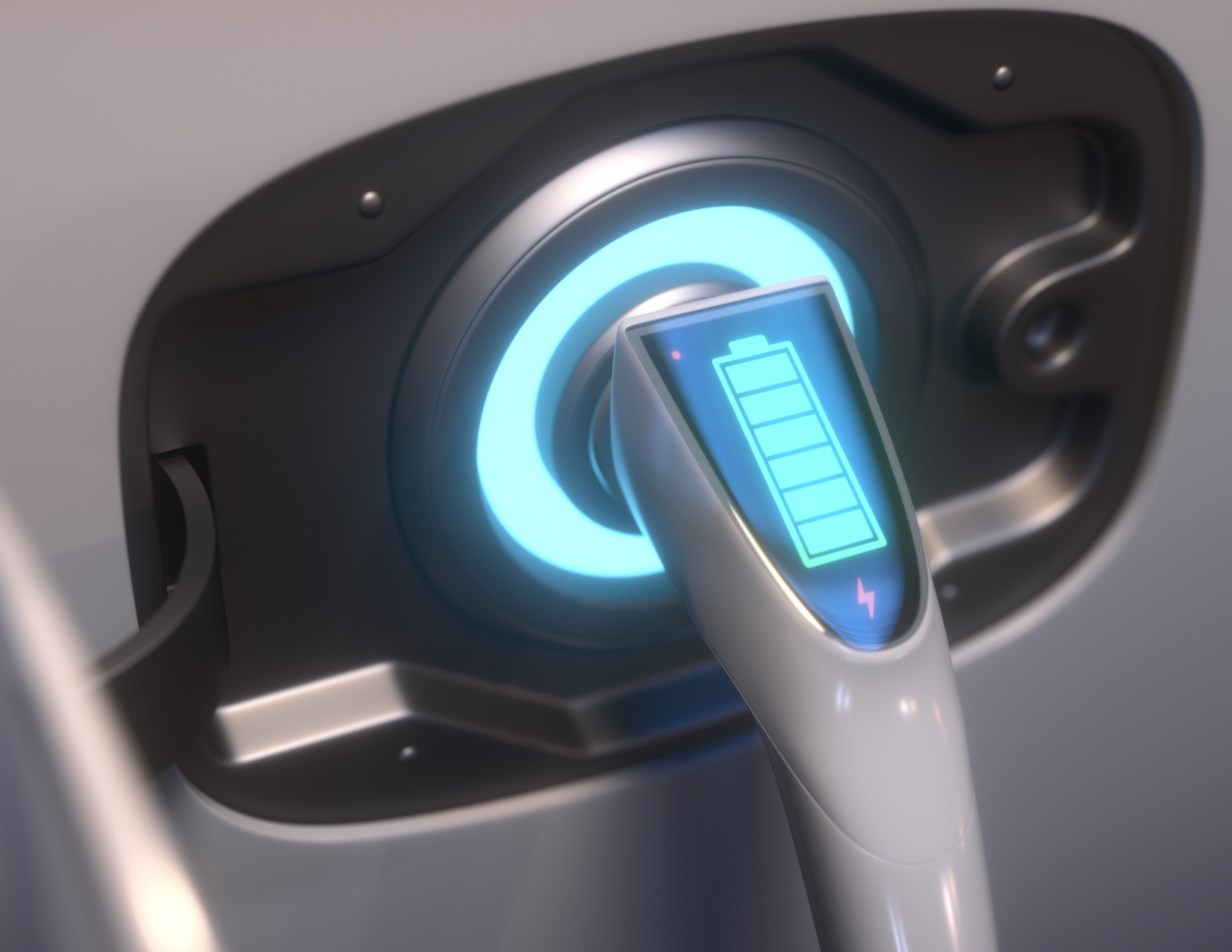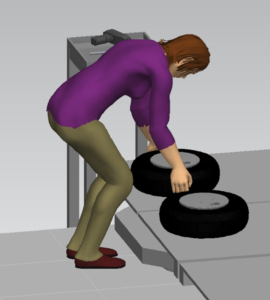Volume 6 | January 2023
QUARTERLY REVIEW
Human-Centered. Solutions Driven.
Virtual Validation for EVs
By Karl Bangert, General Manager fleXstructures North America LLC

The explosion in demand and production of electric vehicles as presented a unique challenge to transportation and wire harness manufacturers. Fitting electrical cables for increasingly more functions in a limited space is a difficult task. A digital approach using IPS Cable simulation enabled WeWire to validate cables at an early development stage – and helped WeWire save time and costs.
Fitting cables in a limited space
Today’s vehicles offer more and more functionality including wheel rotation sensors, electronic parking brakes or damper controls, active suspensions, electrical motors in the wheel, active wheels, all of which need to be built into small spaces of the suspension wheel arch.
Fitting a given cable length in a limited space can lead to crimping or damage to the cable.
The movement of the suspension components may lead to unwanted collisions. The goal of the designer is to make the cable fit the best possible way by adapting length, dimensions, and orientations while taking into account design space and other requirements.
The expert in wiring complex installation spaces
We spoke with WeWire, a subsidiary brand of the Coroplast Group, which works worldwide on innovative wiring solutions for the automotive industry. With around 7000 employees at eight production sites and service centers, WeWire is always close to its customers. Automotive OEMs and their Tier1 suppliers rely on WeWire products for their wiring harnesses. WeWire’s products range from wheel housing and axle wiring, high-voltage wiring systems, injection molded components, autonomous wiring harnesses to infotainment.
Finding the right routing concept
As a full-service provider for all types of automotive wiring harnesses, WeWire offers interdisciplinary concept development and implementation from a single source.
To develop cable routings for car suspensions, WeWire traditionally used their CAD system to evaluate different wheel positions for a rough assessment before actual validation with physical prototypes took place. However, this meant that there was no way to develop routing concepts before hardware was available.
Physical testing was not only very expensive but often did not offer the insight that was needed to ensure a safe and durable operation of the car system. WeWire looked for a way to evaluate a clean routing installation through simulation at an early development phase. Traditional CAD systems were not capable of performing analyses such as tension, bending radius, torsion and distance measures and taking into account the complex behaviors of cables or hoses, it is impossible to perform an analysis in CAD systems. CAE tools, on the other hand, were too complex and time consuming. WeWire needed to find a tool enabling them to design, optimize, and validate these flexible parts digitally.
The virtual, digital solution
WeWire turned to IPS Cable Simulation software from fleXstructures in order to enable their engineers to simulate and validate cable routings already at a concept stage. IPS Cable Simulation is a worldwide leading technology for the simulation of flexibles allowing physically correct simulations in real time. IPS Cable Simulation makes it easy to meet and take into account all constraints relating to the cable such as cable length, clearance, or bundle flexibility. The interaction with the surrounding geometry and clamping configuration (connectors and clips) can be studied, and a validated result can be evaluated in the early phases of the virtual product development process, without physical testing. The solution can be applied for all flexible parts and industrial applications, including hoses and tubes, such as hoses in the suspension area or in the engine compartment or wiring harnesses. With the software it is possible to investigate the system behavior and the impact of the correct physics, the mechanical parameters, gravity in static as well as dynamic vibrations and durability.
IPS simulation software realistically reflects the situation in the assembly
space three-dimensionally in the form of animations, making it possible to
calculate points of contact, collision, and high stress with great precision.
The IPS software provides valuable insights – which would not have been
possible to achieve without simulation – at an early stage and helps us to
save time and costs in the development of reliable and safe cars.“
Matthias Mehnert, WeWire Coroplast Group, Leader Service Center
Großmehringen/Fellbach
Today, WeWire virtually develops and validates the suspension cable routings before any physical prototypes are built. This allows the engineers to do early concept/design evaluations to detect problems early and do design revisions virtually. WeWire also applied the IPS solution when designing a wiring harness of a car passenger seat. As in the first automotive use case, the engineers had to consider the various positions of the harness and the seat kinematics.
Using the experience WeWire engineers gained from the suspension cable routing they were able to apply IPS Cable for this use case and visualize the optimal routing of the cables. WeWire is now able to apply the software to all flexible automotive wiring harnesses in a car from early design concepts to digital validation in real time simulations before any hardware exists.
Saving development time
By using IPS Cable Simulation, WeWire engineers are able to create an early cable routing concept of flexible parts of the entire vehicle. The software allows them to do real time evaluations including analysis before any physical prototype is built. Compared to the traditional CAD based approach used a couple of years ago, the new workflow is much faster and saves up to 70% development time and costs, as well as minimizing the potential of expensive warranty claims.
Sandalwood and fleXstructures North America have teamed up to provide virtual validation solutions in the US, Canadian and Mexican markets. How can this powerful technology provide a savings to your organization?






 Why Sandalwood?
Why Sandalwood?


 We are a one-stop-shop for launching job rotation for any employer from conception to implementation. Our experts tailor our services to meet the needs of our customers by collaborating with them throughout the entire process. We do not offer cookie cutter solutions for job rotation because the needs of employers vary significantly.
We are a one-stop-shop for launching job rotation for any employer from conception to implementation. Our experts tailor our services to meet the needs of our customers by collaborating with them throughout the entire process. We do not offer cookie cutter solutions for job rotation because the needs of employers vary significantly. Why Sandalwood?
Why Sandalwood?



 Sandalwood is pleased to offer solutions above and beyond the traditional ergonomic assessments. With an in-depth knowledge of various digital human modelling software suites, integration and adoption to your health and safety programs has never been easier. Sandalwood is experienced in ergonomic program design as well as industry leaders in digital human modelling services. We have a diverse team that is able the leverage the results from the digital human model to provide in depth risk assessments of future designs and current state. Sandalwood is also able to pair these assessments with expertise and provide guidance on the best solution for you. Sandalwood is also on the forefront of emerging technologies and able to integrate Motion capture, Wearables, and extended or virtual reality into your ergonomic program.
Sandalwood is pleased to offer solutions above and beyond the traditional ergonomic assessments. With an in-depth knowledge of various digital human modelling software suites, integration and adoption to your health and safety programs has never been easier. Sandalwood is experienced in ergonomic program design as well as industry leaders in digital human modelling services. We have a diverse team that is able the leverage the results from the digital human model to provide in depth risk assessments of future designs and current state. Sandalwood is also able to pair these assessments with expertise and provide guidance on the best solution for you. Sandalwood is also on the forefront of emerging technologies and able to integrate Motion capture, Wearables, and extended or virtual reality into your ergonomic program.



